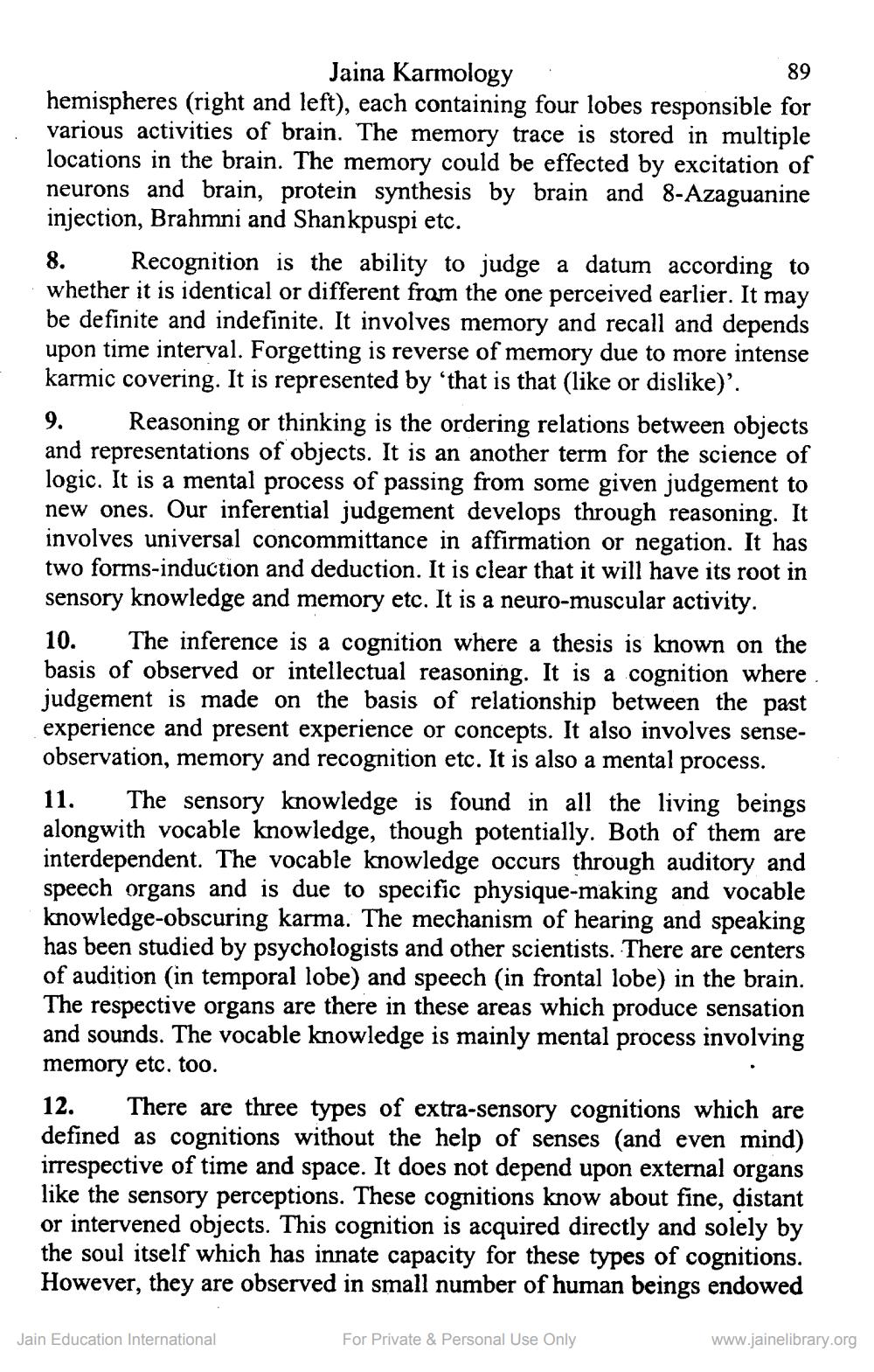________________
Jaina Karmology hemispheres (right and left), each containing four lobes responsible for various activities of brain. The memory trace is stored in multiple locations in the brain. The memory could be effected by excitation of neurons and brain, protein synthesis by brain and 8-Azaguanine injection, Brahmni and Shankpuspi etc. 8. Recognition is the ability to judge a datum according to whether it is identical or different from the one perceived earlier. It may be definite and indefinite. It involves memory and recall and depends upon time interval. Forgetting is reverse of memory due to more intense karmic covering. It is represented by that is that (like or dislike)'. 9. Reasoning or thinking is the ordering relations between objects and representations of objects. It is an another term for the science of logic. It is a mental process of passing from some given judgement to new ones. Our inferential judgement develops through reasoning. It involves universal concommittance in affirmation or negation. It has two forms-induction and deduction. It is clear that it will have its root in sensory knowledge and memory etc. It is a neuro-muscular activity. 10. The inference is a cognition where a thesis is known on the basis of observed or intellectual reasoning. It is a cognition where judgement is made on the basis of relationship between the past experience and present experience or concepts. It also involves senseobservation, memory and recognition etc. It is also a mental process. 11. The sensory knowledge is found in all the living beings alongwith vocable knowledge, though potentially. Both of them are interdependent. The vocable knowledge occurs through auditory and speech organs and is due to specific physique-making and vocable knowledge-obscuring karma. The mechanism of hearing and speaking has been studied by psychologists and other scientists. There are centers of audition (in temporal lobe) and speech in frontal lobe) in the brain. The respective organs are there in these areas which produce sensation and sounds. The vocable knowledge is mainly mental process involving memory etc. too. 12. There are three types of extra-sensory cognitions which are defined as cognitions without the help of senses (and even mind) irrespective of time and space. It does not depend upon external organs like the sensory perceptions. These cognitions know about fine, distant or intervened objects. This cognition is acquired directly and solely by the soul itself which has innate capacity for these types of cognitions. However, they are observed in small number of human beings endowed
Jain Education International
For Private & Personal Use Only
www.jainelibrary.org




